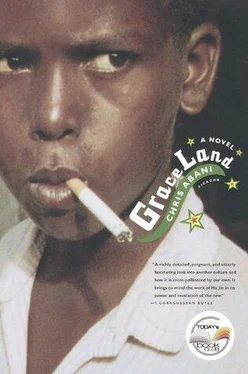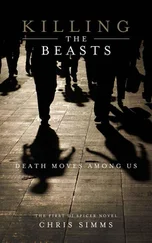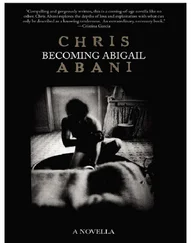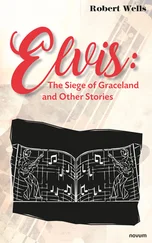“Please control yourselves. Dis is not boys’ club. We are here to discuss our future. Be reasonable, Confidence,” Madam Caro cut in.
Elvis looked at her. What is she doing here? he thought. She didn’t even live in the building. He noted that there were in fact several people, some he did not know, gathered around his father.
“Thank you, madam,” Sunday said, quickly wrestling control away from her.
“What is going on here?” Elvis demanded.
“Dis your child no get manners O!” Freedom, a teacher from the building next door, said. He had a high-pitched voice and effeminate ways, which included a penchant for short-sleeve shirts that bore an uncanny resemblance to women’s blouses.
“Hold it, Freedom,” Sunday said. Turning to Elvis, he said, “We are planning revolution here.”
“Revolution? For what?”
“You dey dis Lagos? Abi, you never hear dat gofment want to bu’doze Maroko?”
“This Maroko?”
“Yes,” Madam Caro said.
“Here, read de paper,” Sunday said, handing it to Elvis. As he scanned the story, Elvis heard them return to arguing.
“So how do we go on from dis point?” Freedom asked.
“Well, my view is that dey should not be allow to get away with it. We must oppose them,” Jagua replied.
“But how?” someone Elvis didn’t know asked.
“We rally de people around us. Dey do not like it either dat de authorities are trying to demolish deir town,” Sunday said.
“It is one thing to think it is wrong, but why do you think they will risk anything for you?” Elvis asked.
“Not for me, my son, but de cause.”
“What cause? Who do you think you are, Malcolm X?”
Sunday shot Elvis a withering look.
“Elvis, show some respect,” Madam Caro said.
Elvis looked away.
“De boy is right O!” Freedom said. “We need strong leader.”
“Like who? De Beggar King?” Sunday asked.
“Weren’t you just criticizing him the other night?”
“I still am.”
“Ah, de man influential O!” Madam Caro said.
Elvis stared at her in surprise. He didn’t know she even knew who the King was.
“Dese people have been treated badly by de authorities all their lives. Dey pay high taxes, get low wages, poor accommodation, no clean water,” Sunday argued.
“Okay, chief. We get de point. Dis is not election campaign. Just tell us what to do,” Confidence interrupted.
Sunday glowered at him.
“So, Elvis, you will talk to de King?” Sunday asked.
“Talk to him yourself.”
“Leave dis your stupid son, I will go and call de King,” Confidence said.
“You know where he lives?” Sunday asked.
“No, but I de see him begging near Bridge City for Ojuelegba.”
“Return quick,” Jagua said.
With Confidence gone, the men started a game of checkers to keep busy until his return. Madam Caro walked hurriedly back to her bar, glad to be able to check on her helpers, whom she was convinced were stealing from her. Elvis sat back and watched the game unfold. If he hadn’t grown up in this culture, he might have thought it strange to have walked in on the heated debate about not letting the government get away with their plans and then to see the same people who had been protesting only moments before begin a game of checkers while they waited for something to happen — in this case, the return of Confidence with the King. Yawning, he contemplated going out for a meal and a drink, but he didn’t want to miss any of the unfolding events.
Jagua, who had lost early in the round of checkers, was the first to see Confidence returning. He called out, and everyone’s attention followed his pointing finger.
“Well done, Confidence,” Sunday said as soon as Confidence and the King were within earshot.
Confidence came up onto the veranda, but the King stayed a few feet away in the middle of the street. Jagua studied the King with some distaste, even though, with his matted dreadlocks and lean face, Jagua could have been a relative.
“Where you find him?” he asked.
“Near Ojuelegba, so I tell him dat we want to talk to him about something. But he refuse to follow me until I give him some money. So you people owe me twenty naira,” Confidence replied.
“Don’t worry about dat,” Sunday said. “We are in dis together. Somebody go and call Madam Caro.”
Nobody moved, so he turned and yelled for Comfort’s son Tunji. When Tunji emerged from the dark innards of the building, Sunday sent him off at a fast trot to summon Madam Caro. “And tell her dat palm wine is needed to smooth dese talks,” Sunday added as Tunji scampered off.
The King had been silent all this while, and except for a smile in Elvis’s direction, he gave no indication that he knew who he was.
“Hello, people,” the King called. “Any chance for food?”
“Help us and den we shall see,” Sunday called.
“So how can de King help you?” he asked Sunday.
As he was about to answer, Sunday saw Madam Caro hurrying over, a small keg of palm wine in her hand. He delayed his response until she had found a seat on the veranda, then sketched out the nature of their dilemma as the King listened thoughtfully. While Sunday was explaining, someone had gone to fetch a cold soft drink and a small loaf of bread for the King. Accepting them gratefully, he proceeded to chew loudly throughout Sunday’s monologue. He finished the bread just as Sunday finished speaking.
“So what is your advice?” Sunday asked.
The King put the soft drink to his mouth and, without taking his eyes off Elvis, drained the bottle. With a satisfied sigh he put it down.
“Well, as I know, dis gofment is not easy. To put hand for deir eye is dangerous.”
“Look, we are not small children. We know de risk. Just tell us how for do,” Confidence said impatiently.
“Well, in my experience, marching with placard is de best way to start.”
“Marching where?” Jagua asked.
“Like in front of deir office. Dat is de first step,” the King replied.
“I go bring de women. We go march to local council office and tell dem our vex,” Madam Caro said, jumping in.
“We will march on de council offices on Monday. Dat gives us two days to get things set. I will lead, de men can carry placards and de women can support with singing and refreshments,” Sunday said.
Madam Caro glared at him.
“Not dat de women are less important, though, right?” Freedom cut in sarcastically.
None of the men responded.
“I can make de placards quick quick,” Confidence said, caught in the sudden optimism of the moment.
“Dere is only one problem,” Sergeant Okoro said softly.
He lived in the same building and had been silent for much of the argument. His usual gruff and aggressive demeanor was replaced by a softer, almost fearful side. Occasionally, Sergeant Okoro had been menaced on his way home from work by some of the other residents, as he was the most readily available authority figure. Once or twice he would have been very badly hurt if Sunday hadn’t intervened. Even his decision to invite him to this meeting was not popular, but Sunday knew none of the others really wanted to go against him.
“What is de problem?” Sunday asked.
“Well, as far as I know, de police dey come here tomorrow, with bu’dozer. Dere is no time for marching on Monday.”
“So what now?” Confidence asked.
“Time for step two,” the King said.
“What is step two?”
“It is dangerous. Are you sure?” the King asked.
“Look, we are not playing here,” Freedom said.
“Okay. Step two is to stop dem from entering Maroko.”
“Stop dem from entering?” Freedom asked.
“Form human barrier at all de entrance,” the King said.
Читать дальше












